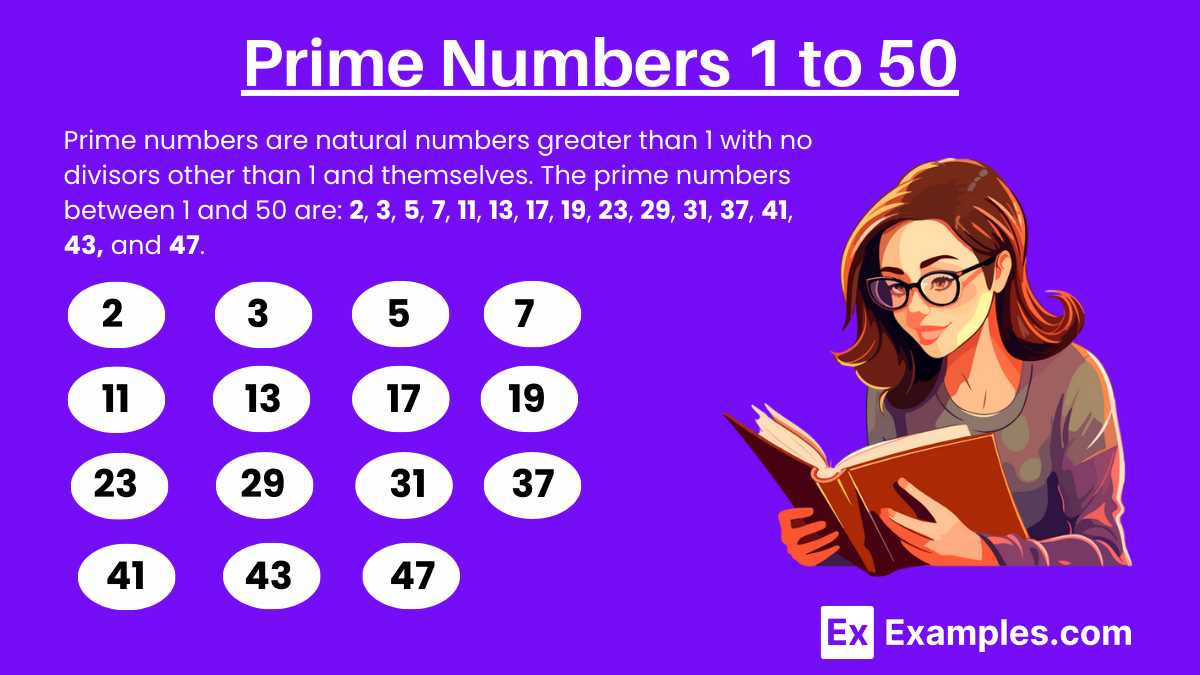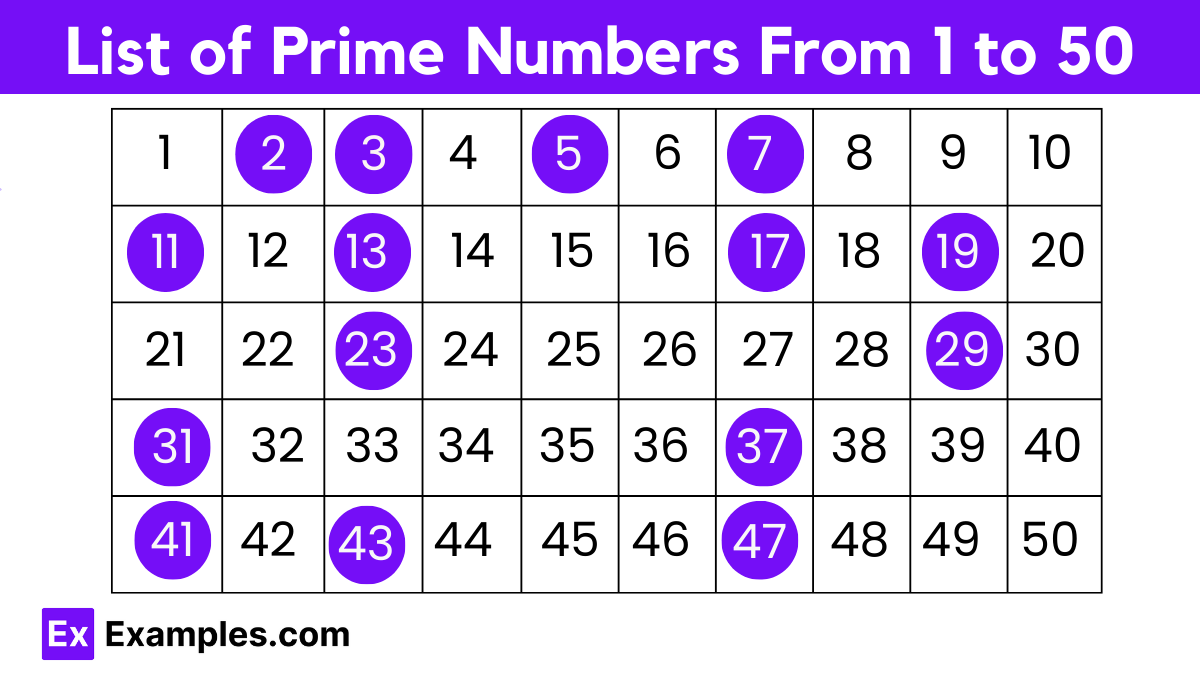Which of the following is a prime number between 1 and 50?
22
29
35
44


Prime numbers are natural numbers greater than 1 that have no positive divisors other than 1 and themselves. This means a prime number is only divisible by 1 and itself, ensuring it has exactly two distinct positive divisors. The prime numbers between 1 and 50 include 2, 3, 5, 7, 11, 13, 17, 19, 23, 29, 31, 37, 41, 43, and 47. These numbers play a crucial role in number theory due to their properties and applications, including cryptography, prime factorization, and mathematical proofs. Prime numbers are foundational in understanding the structure and behavior of natural numbers.
Download List of Prime Numbers From 1 to 50 in Pdf

Download Prime Numbers 1 to 50 in Pdf
| Prime Numbers | Prime Numbers | Prime Numbers |
|---|---|---|
| 2 | 13 | 31 |
| 3 | 17 | 37 |
| 5 | 19 | 41 |
| 7 | 23 | 43 |
| 11 | 29 | 47 |
Prime numbers from 1 to 50 provide a foundational understanding of prime characteristics and their importance in mathematics. These numbers, including 2, 3, 5, 7, 11, 13, 17, 19, 23, 29, 31, 37, 41, 43, and 47, are essential for various mathematical concepts, such as factorization, cryptography, and number theory. Recognizing and working with primes enhance problem-solving skills and supports more advanced mathematical studies. The distribution and properties of prime numbers continue to be a significant area of research, showcasing their perpetual relevance in the mathematical landscape.
Text prompt
Add Tone
10 Examples of Public speaking
20 Examples of Gas lighting
Which of the following is a prime number between 1 and 50?
22
29
35
44
Which number is not a prime number?
31
37
39
41
Identify the prime number among these:
40
43
46
48
Which of these numbers is a prime number?
53
50
54
56
What is the prime number between 1 and 50 that is immediately greater than 23?
29
31
37
41
Choose the prime number from the following list:
26
27
29
30
Which number is a prime number less than 50?
47
48
49
45
Identify the number that is a prime number:
33
35
37
39
Which of these numbers is not a prime number?
23
25
29
31
Select the prime number from the following options:
52
53
54
55
Before you leave, take our quick quiz to enhance your learning!

